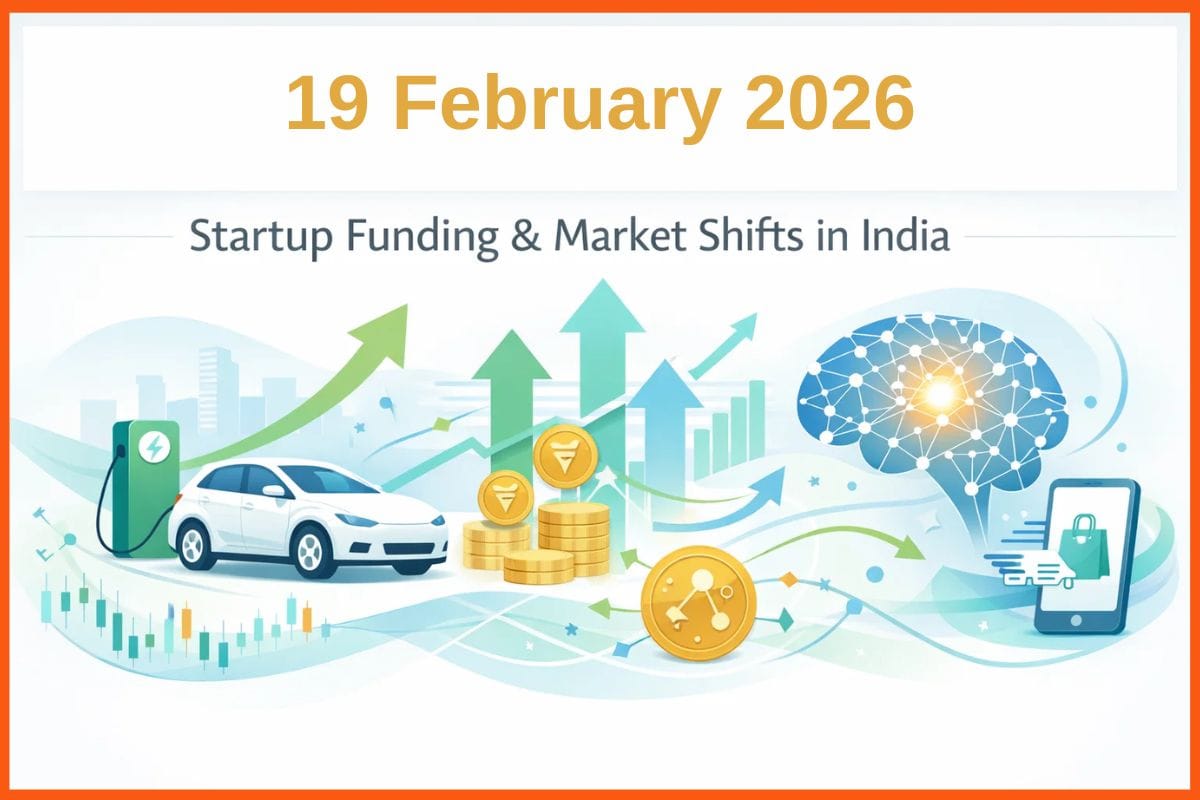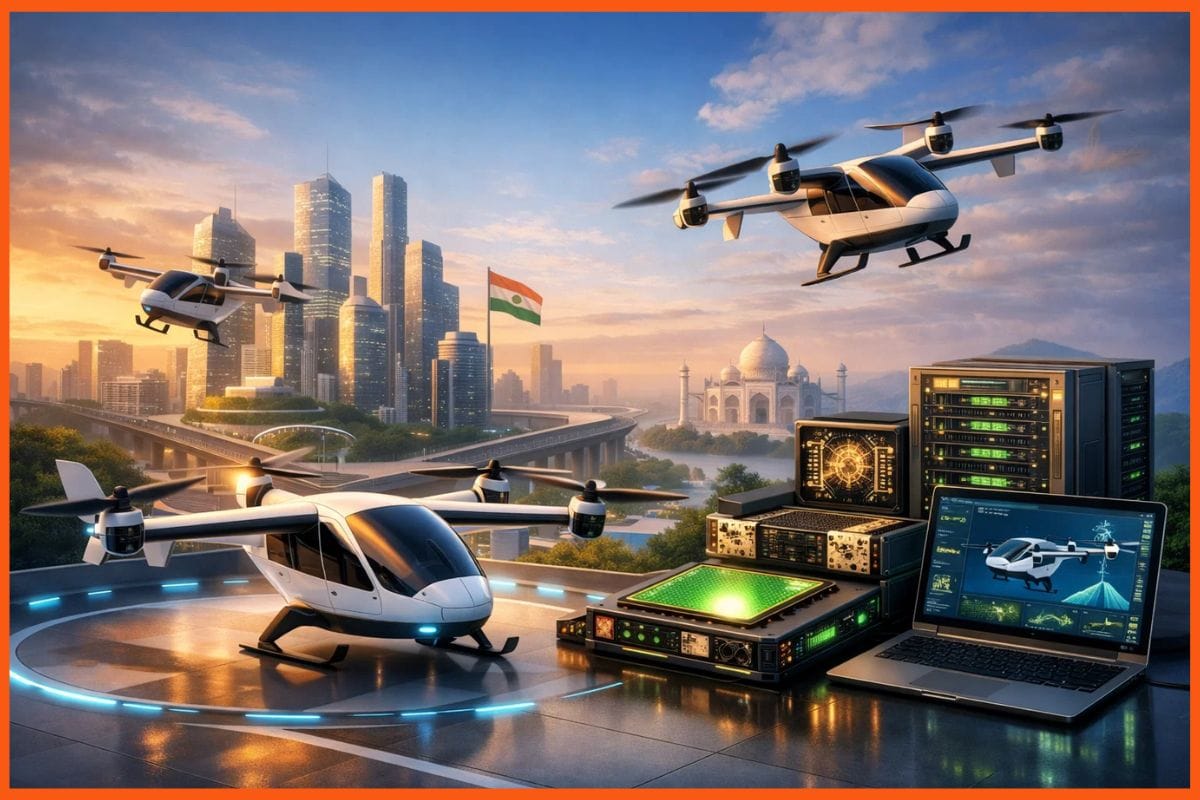Neil Unadkat Co-founder and CTO of Intangles Lab, Advises to Prioritize Solution Development Over Feature Selling
Year End Stories
StartupTalky presents Recap'22. This is a series of interviews in which we conduct in-depth discussions with founders & industry leaders to understand their growth in 2022 and their predictions for the future.
Artificial intelligence (AI) is being increasingly used in the field of mobility to improve the efficiency, safety, and sustainability of transportation systems. The goal of mobility planning is to create transportation systems that are sustainable, efficient, and equitable for all users. This can be achieved through a combination of infrastructure improvements, policy changes, and education and outreach programs.
Mobility planning is the process of designing and implementing transportation systems that are efficient, safe, and accessible for all users. The field of mobility planning has grown in recent years as more emphasis has been placed on creating sustainable, efficient, and accessible transportation systems.
According to a report by MarketsandMarkets, the global smart mobility market is expected to grow from $66.34 billion in 2020 to $173.75 billion by 2025, at a CAGR of 21.7% during the forecast period. This growth is driven by factors such as increasing urbanization, the need for sustainable transportation, and advancements in technology. However, please note that this information is based on a specific market research report, and the actual growth rate may vary depending on the specific sources and data.
For this Interview, we invited Mr. Neil Unadkat, Co-founder and CTO of Intangles Lab Pvt. Ltd., and we talked about the growth, challenges, insights, and future opportunities in the Mobility industry.
StartupTalky: Neil, what service does your company provide? What was the motivation/vision with which you started?
Neil Unadkat: Intangles Lab started operations in 2016. Our passion for data sciences and automobile technologies led us to the exploration of On-Board Diagnostics data streams on commercial vehicles, including trucks and buses, which opened doors to a vast arena of opportunities.
With a clear use case in sight, we developed our hardware interface capable of collecting data from CV (Commercial Vehicle) platforms across OEMs, fuel injection, and emissions technologies. This was augmented with a state-of-the-art edge-to-cloud communication backbone and a suite of proprietary algorithms targeted toward predictive health alerts, driver behavior profiling, fuel pilferage, and geospatial intelligence.
Our vision is to become the global de facto standard for predictive AI in mobility. Our solutions are focused on the health of the vehicle, driver behavior analysis, and efficient operations automation. We have taken the approach of creating digital twins of specialized power-train functions such as battery charging, engine cooling, fuel injection, and assisted air intake. Historic and real-time data helps deliver alerts of possible failures, leading to a significant reduction in the on-road breakdown of vehicles, thereby increasing operational hours and lowering maintenance/repair costs.

StartupTalky: What new services have been added in the past year? What is/are the USP/s of your service?
Neil Unadkat: In 2022, we launched a new Inline Driving Scorecard feature that enables fleet operators to monitor and analyze erroneous driving practices and incentivizes good driving behavior. The Scorecard provides accurate feedback on
gear utilization trends, idling instances, and other erroneous driving practices, thereby improving fuel efficiency and the overall health of the vehicle. It takes into consideration different driving and ambient conditions and vehicle specifications. Fleet operators witnessed an impressive 12-15% improvement in fuel economy on utilizing the feature.
2022 marked our foray into vigorous revamps in the EV sector. We built comprehensive feature sets around cloud-integrated range prediction. Range prediction has always been a major roadblock when it comes to the widespread adoption of EVs and different vehicles on the same route are found to exhibit a high level of variance in battery discharge rates (2%-15%).
In addition to that, the Digital Information System (DIS) estimates of Distance To Empty (DTE) are highly unreliable. As a result, ad hoc charging sessions based on spurious DTE readings lead to schedule disruption. Intangles’ platform provides comprehensive data on the number of charging cycles from the moment our device is installed on the vehicle, as well as backtracked data from the moment the vehicle hits the roads. This is done by taking into account the Battery Management System (BMS) degradation levels over time. We also provide accurate SOC and DTE predictions considering varying ambient and driving conditions. In addition to weather forecasts, the model has been trained to make predictions around motor torque, wheel speed, and sunset-sunrise trends, which influence HVAC and lighting. This multi-parametric approach enables consistently accurate predictions across dynamic ambients, traffic conditions, and routes.
Our core differentiator is the derivation of easily discernible, actionable insights from complex telemetry data streams targeted at fulfilling the KPIs of the everyday fleet manager. These envelopes have highly accurate performance statistics (fuel consumption, distance, run hours), predictive alerts for failure with the highest levels of precision, diagnostics alerts with elaborate metadata (causes, repair strategies), and comprehensive reports on schedules and pilferages.
StartupTalky: How has the mobility industry changed in recent years, and how has your company adapted to these changes?
Neil Unadkat: Over the last couple of years, the automotive industry has undergone significant changes. The government's introduction of new policies and norms has facilitated the development of new and complex technology. These developments have also been accompanied by complications for fleet operators as the inflow of massive amounts of data and the number of unknown variables when the vehicle is on the road keeps increasing. The technology has progressed by leaps and bounds and demands that operators keep pace.
Our solutions are aimed at helping them navigate these challenges by adapting and updating our technology in accordance with the latest trends. We also aim to provide them with better visibility into their fleets using our ML-driven data insights. This has facilitated better profitability for our customers, growth for our organization, and new and better technology for the industry at large.
Startuptalky: How do you stay up-to-date on the latest trends and developments in your industry?
Neil Unadkat: We always encourage interactive and productive discussions with our end users regarding their pain points and difficulties. Our efforts are aimed at centering our offerings based on these discussions. In addition, on-field real-
time feedback provided by our fleet operator partners gives us scrupulous insights into the latest trends in the industry.
When it comes to our OEM partners, we are constantly in touch with experts and thought leaders who drive the industry toward growth. These conversations help us better understand upcoming and projected developments within the industry.
StartupTalky: What key metrics do you track to check the company's growth and performance?
Neil Unadkat: If we talk about metrics and performance, there are a few things I would like to highlight.
- We are constantly generating around 1,00,000 predictive alerts per month, which has enabled as much as a 75% reduction in breakdown events.
- Tracking over 400,000 liters of fuel pilferage through our devices equipped in Indian fleets.
- Recording a 20-30% improvement in driver behavior through our monitoring of 20+ driver behavior exceptions.
- Bringing about a 10-30% increase in asset availability owing to a reduction in vehicle breakdowns.
- Helping reduce vehicle maintenance costs by 5-10%.
We have witnessed staggering growth when it comes to revenue. As of today, we have onboarded 7 OEMs in the 11 countries where we are now operating. Furthermore, the platform already has over 8,000 fleet operators. We enroll around 800 fleet operators every month and collect an astounding 5 billion sensory data points per day. We estimate 5x growth in FY'23, with some of the top brands in mobility already signed up as customers.
StartupTalky: What were the most significant challenges your company faced in the past year, and how did you overcome them?
Neil Unadkat: The most significant challenge we have faced in the past year has been keeping up with our staggering growth numbers. We have been pouring all our efforts into upholding the quality standards of our solutions while sustaining our growth. Ensuring that our customers get only the best-in-class service has been our foremost priority, and to maintain that, we have been multiplying our resources on all fronts. We have also had to assess, evaluate and rethink some of our strategies going forward to sustain the progress.
StartupTalky: Good service is something everyone is talking about in the service industry. How do you ensure that your clients are happy?
Neil Unadkat: Our aim has always been to ensure our customers overcome the issues they originally approached us with. After resolving those issues, we direct our efforts to keep up with the varying demands of the market to meet their requirements. This is accomplished through constant updation and revamping of our technology and customer experience strategies.
StartupTalky: Foreign clients- this is what most service-based companies are looking for. What has been your experience?
Neil Unadkat: Globally, we have a diverse range of fleet operators in the automotive sector, but they majorly end up suffering from similar pain points. Their efforts are focused on increasing the efficiency of their fleets, gaining better
visibility, avoiding breakdowns and malfunctions along with saving on expenses. After gaining a comprehensive understanding of our value propositions and solutions, operators across different demographics are keen on adapting our technology.
We aspire to become the Digital Twin Open-Source Software (OSS) of the world across every segment. Our vision is to bring the power of Digital Twin technology to every segment across the globe so that it is accessible and benefits everyone. While we are cementing our position in the Indian mobility ecosystem, the prospect of new opportunities in North America, Europe, Australia, and APAC is highly promising. Our remarkable development and expansion story exemplifies the game-changing potential of Predictive Analytics enabled by Digital Twin technology. We will continue our efforts to redefine performance benchmarks in mobility and transportation in FY’23.
StartupTalky: What are the important tools and software you use to run your business smoothly?
Neil Unadkat: The majority of the tools we use have been custom-built by us internally and are well-integrated to fulfill the core applications and requirements of our product. We have also integrated third-party systems for internal tooling in
functions like sales, inventory, and production planning.
StartupTalky: What opportunities do you see for future growth in your industry in India and the world? What kind of difference in market behavior have you seen between India and the world?
Neil Unadkat: The Indian government has been heavily investing in improving road infrastructure. We also project significant growth in long-haul travel and last-mile deliveries. The nation is embracing a more connected ecosystem to use data to understand and improve every element within the system. Data sharing positively impacts the operations, service, maintenance, routing, dispatch, and other core functions of a fleet. With more connected vehicles hitting the road and sharing extensive data, the industry is scheduled to be the fastest-growing segment in terms of machine-to-machine connections.
Electric vehicles have also generated a stir across the industry, with factors like sustainability and efficiency at the forefront. Moreover, automakers are continuously increasing their efforts to provide a diverse range of AI-driven features. For instance, complex driver monitoring systems that evaluate driving behavior, cognitive-behavioral processes, and vehicle health diagnostics are being designed using machine and deep learning algorithms.

StartupTalky: How do you plan to expand the Customers, service offering, and team base in the future?
Neil Unadkat: We are aiming to deploy our devices across the entire Commercial Vehicle segment. This also involves vigorous revamps in the Electric Vehicle segment through our extensive Ambient Cognitive AI technology that gives you
real-world performance numbers. We are helping organizations meet the regulatory emission norms in accordance with CPCB - 4 and IUMPR requirements according to OBD regulations. We are also working towards bringing Over-The-Air (OTA) software updates for the ECUs. We are helping fleet operators stay ahead of the curve by getting better visibility on complex powertrains and simplified analysis of their fleet’s health and daily operations.
To keep pace with our massive demand in the market, we need to maintain a growing workforce that can excel and fulfill requirements. To sustain a growth rate of over 200% year-on-year, we are expanding our workforce on multiple levels throughout the organization. In line with our expansion plans, we plan to expand our workforce domestically and internationally.
StartupTalky: One tip that you would like to share with another Service company founder?
Neil Unadkat: Your primary focus should be on developing solutions rather than feature selling. As long as your organization is able to solve a customer’s problems, they will always be open to working and experimenting collaboratively on new features and developments.
We thank Mr. Neil Unadkat for spending his valuable time and sharing his learnings with all of us.
You can read other Recap'22 Interviews here.
Must have tools for startups - Recommended by StartupTalky
- Convert Visitors into Leads- SeizeLead
- Website Builder SquareSpace
- Run your business Smoothly Systeme.io
- Stock Images Shutterstock






